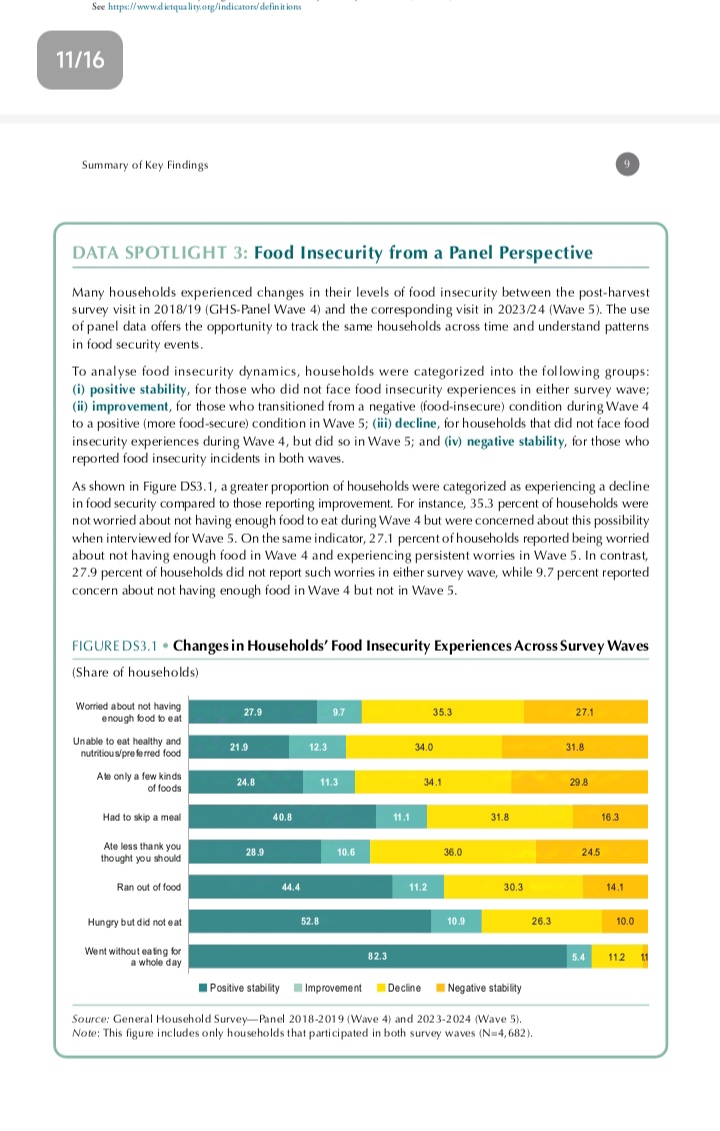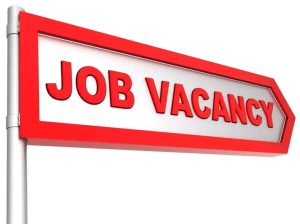By: Wisdom Darasimi
Nigerians are more insecure about where their next meal will come from compared to five years ago, a report published by the National Bureau of Statistics (NBS) on Friday shows.

According to the report titled Nigeria General Household Survey- Panel (Wave 5), a greater number of households in Nigeria experienced a decline in food security between 2023 and 2024 compared to 2018 and 2019.
The survey shows that more people are now worried about where their next meals would come from compared to before. It also shows that in some households the concerns have become more persistent.
“A greater proportion of households were categorised as experiencing a decline in food security compared to those reporting improvement. For instance, 35.3% of households were not worried about not having enough food to eat during Wave 4 but were concerned about this possibility when interviewed for Wave 5,” the report reads.
“On the same indicator, 27.1% of households reported being worried about not having enough food in Wave 4 and experiencing persistent worries in Wave 5.”

The survey also revealed that between 2023 and 2024, 35.3% of the Nigerians in the survey were worried about not having enough food to eat, while 34% were unable to eat healthy, nutritious or preferred food.
The NBS said it categorised households into positive stability: those who did not face food insecurity experiences between the two periods of the survey; improvement: for those who transitioned from a negative (food-insecure) condition during Wave 4 to a positive (more food-secure) condition in Wave 5; decline: households that did not face food insecurity experiences during Wave 4, but did so in Wave 5; negative stability, for those who reported food insecurity incidents in both waves.
Need protein drink? Try cockroach milk – Report
Another part of the report stated that 68% of Nigerian households (two out of three) were unable to eat healthy, nutritious, or preferred foods due to lack of money in the last 30 days.
“63.8% of households ate only a few kinds of food due to lack of money, 62.4% were worried about not having enough food to eat, and 60.5% ate less than they thought they should,” the report reads further.
65% of Nigerian households rely on traditional cooking methods, says NBS
“Furthermore, 12.3 % reported that at least one person in the household went without eating for a whole day, and 20.8% of households had to borrow food or rely on help from friends or relatives.”
It also revealed that at the national level, the number of households worried about not having enough food to eat because of lack of money compared to 2018 and 2019 has doubled.
It says that about 71% of households experienced shocks with the high cost of food, while 48.8% have been forced to reduce their food consumption as a coping mechanism.
For Latest news and Job Updates, Join our WhatsApp Channel
https://whatsapp.com/channel/0029Va9qtzXHwXbIyBGtjk2o
The NBS October headline inflation rate was 33.88% compared to September when it was 32.70%. This shows how much more Nigerians now pay for essentials like food. States like Sokoto, Edo and Borno take the highest leads in food inflation with 52.18%, 46.55% and 45.88% respectively.








